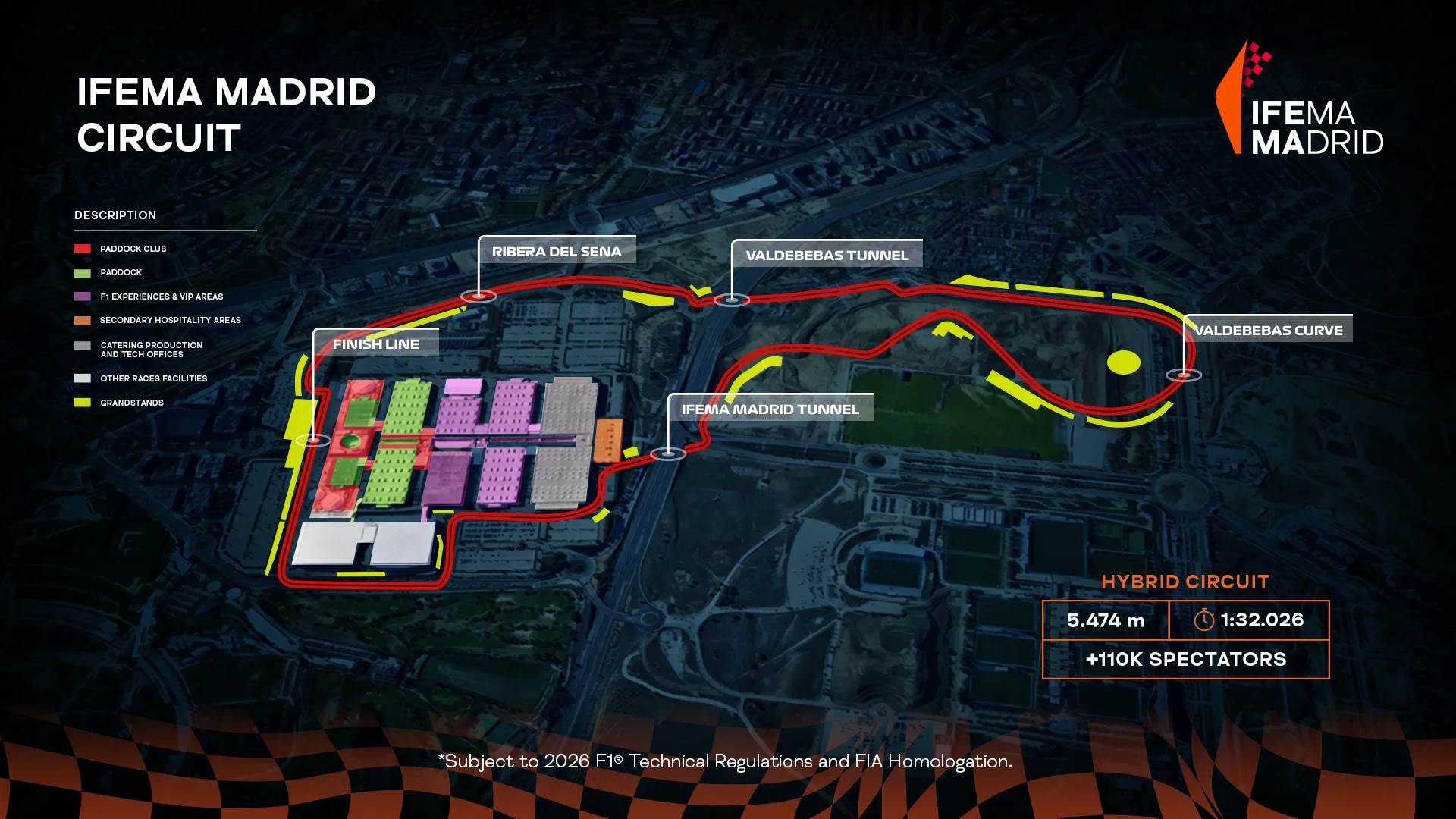Formula 1 has confirmed that Madrid will be joining its calendar from 2026 onwards. The all-new circuit in the Spanish capital will incorporate both street and non-street sections.
A 10 year deal, running from 2026 to 2035, has been signed for F1 to race in Madrid. So what does this mean for the future of the Circuit de Barcelona-Catalunya (which has hosted the Spanish GP since 1991)? Read on to find out:
- New Madrid circuit to host F1 Spanish GP from 2026
- 5.47km long, 20 corners
Madrid F1 track layout
While the final design is still subject to homologation, the circuit is projected to be 5.47km long and feature 20 corners. There are also plans to make turn 10 banked, making Turns 11 and 12 key overtaking spots.
Organisers predict an average speed of 218kph and a qualifying lap time of 1 min 32 secs, making this one of the longer tracks on the calendar.

Hybrid circuit
The Madrid circuit will use both public roads and private land. Some sections will run around the IFEMA exhibition centre, while other sections will run on local roads, similar to the current Miami GP track. It will also feature two short tunnel sections.
“It’s in between what you’d consider a normal street track layout and more towards a permanent circuit style layout,” said F1’s Head of Vehicle Performance Craig Wilson. “A lot of the places will have a temporary circuit-type installation, but then there’s other sections which may look or feel a bit different depending on the final implementation decisions to suit the IFEMA site.”
Madrid track being built with accessibility in mind
This is the first time that F1 will be racing in Spanish capital. The Jarama circuit hosted F1 races between 1968 and 1981, but that track is located around 32km north of Madrid.
F1 says the new Madrid track will make the Spanish GP “one of the most accessible races on the calendar”. The venue is located five minutes from the Madrid-Barajas Adolfo Suarez airport; it’s also estimated that 90 percent of fans will be able to travel to the paddock via public transport. Additionally, F1 says any temporary structure built for the race will be constructed using recyclable material.
When completed, the venue will sit next to the Real Madrid Sport City training ground complex. It will have capacity for 1,10,000 fans per day and organisers plan to later grow this capacity to 1,40,000.
“Madrid is an incredible city with amazing sporting and cultural heritage, and today’s announcement begins an exciting new chapter for F1 in Spain,” said Stefano Domenicali, President and CEO of Formula 1.
“I would like to thank the team at IFEMA MADRID, the Regional Government of Madrid and the city’s Mayor for putting together a fantastic proposal. It truly epitomises Formula 1’s vision to create a multi-day spectacle of sport and entertainment that delivers maximum value for fans and embraces innovation and sustainability.”
What happens to Barcelona?
The long-term deal with Madrid puts in doubt the future of the Circuit de Barcelona-Catalunya, which has hosted the Spanish GP since 1991. F1’s announcement makes no mention of Barcelona, and Domenicalli says that a second race in Spain hasn’t been ruled out just yet.
“For the avoidance of doubt and to clarify here, the fact we are in Madrid is not excluding the fact we could stay in Barcelona for the future,” he said.
“Looking ahead, there are discussions in place to see if we can really extend our collaboration with Barcelona, with whom we have a very good relationship, for the future.”
Also see:

